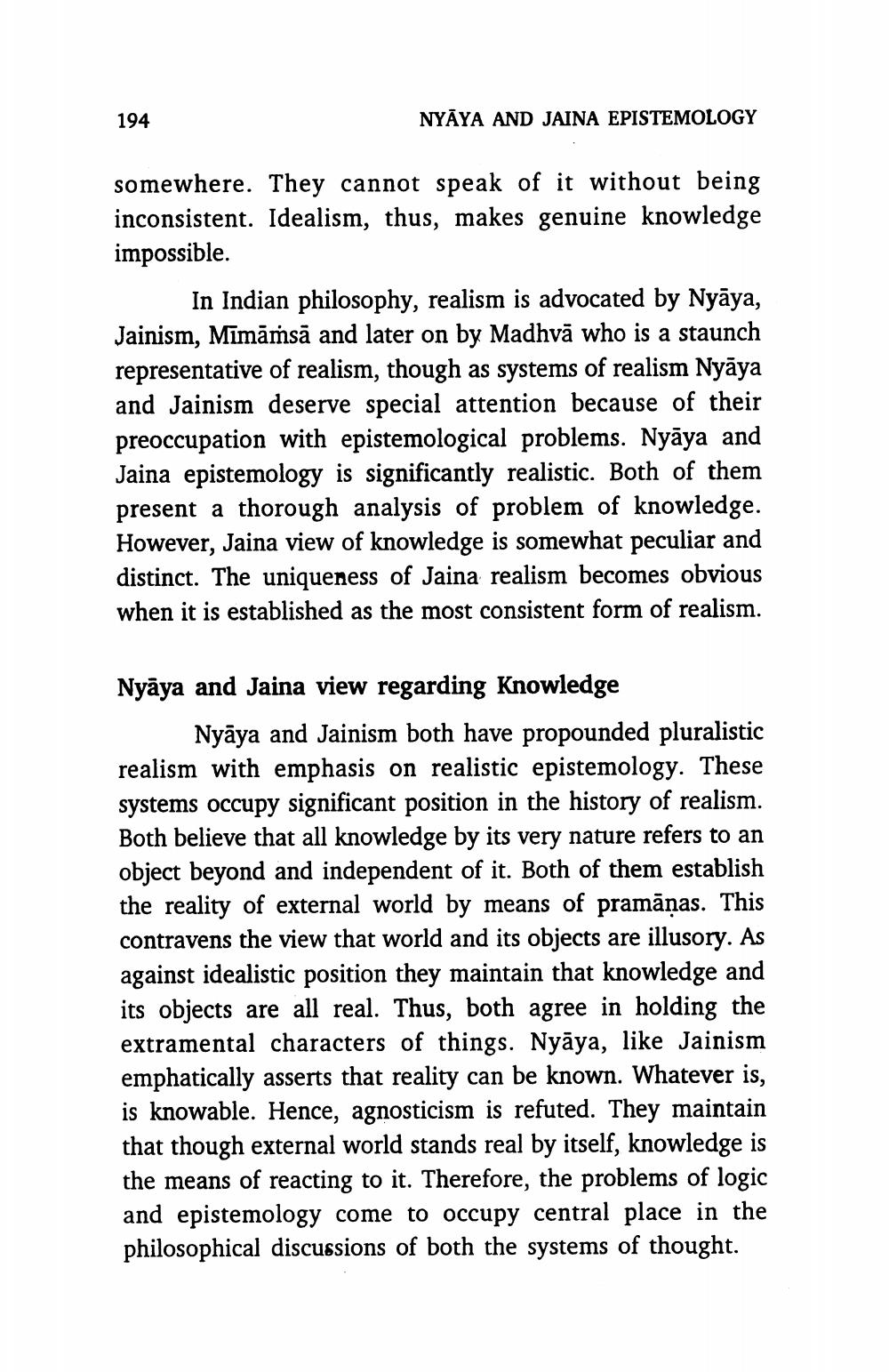________________
194
NYAYA AND JAINA EPISTEMOLOGY
somewhere. They cannot speak of it without being inconsistent. Idealism, thus, makes genuine knowledge impossible.
In Indian philosophy, realism is advocated by Nyāya, Jainism, Mīmāṁsā and later on by Madhvā who is a staunch representative of realism, though as systems of realism Nyāya and Jainism deserve special attention because of their preoccupation with epistemological problems. Nyāya and Jaina epistemology is significantly realistic. Both of them present a thorough analysis of problem of knowledge. However, Jaina view of knowledge is somewhat peculiar and distinct. The uniqueness of Jaina realism becomes obvious when it is established as the most consistent form of realism.
Nyāya and Jaina view regarding Knowledge
Nyāya and Jainism both have propounded pluralistic realism with emphasis on realistic epistemology. These systems occupy significant position in the history of realism. Both believe that all knowledge by its very nature refers to an object beyond and independent of it. Both of them establish the reality of external world by means of pramāṇas. This contravens the view that world and its objects are illusory. As against idealistic position they maintain that knowledge and its objects are all real. Thus, both agree in holding the extramental characters of things. Nyāya, like Jainism emphatically asserts that reality can be known. Whatever is, is knowable. Hence, agnosticism is refuted. They maintain that though external world stands real by itself, knowledge is the means of reacting to it. Therefore, the problems of logic and epistemology come to occupy central place in the philosophical discussions of both the systems of thought.




